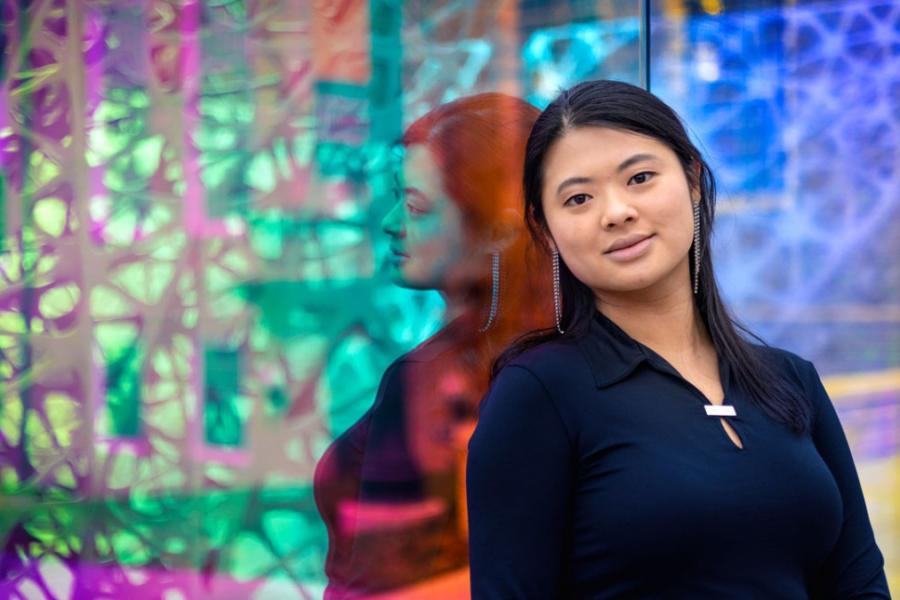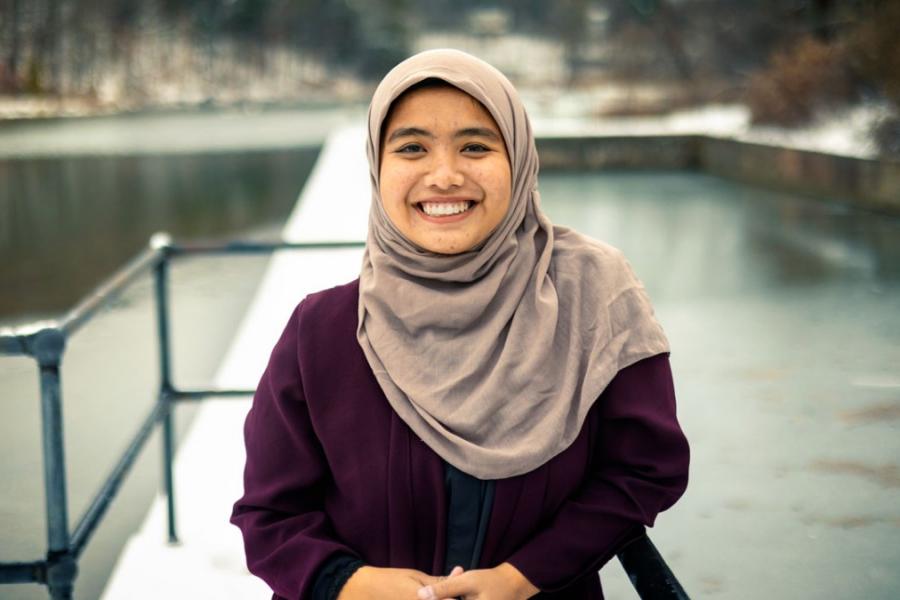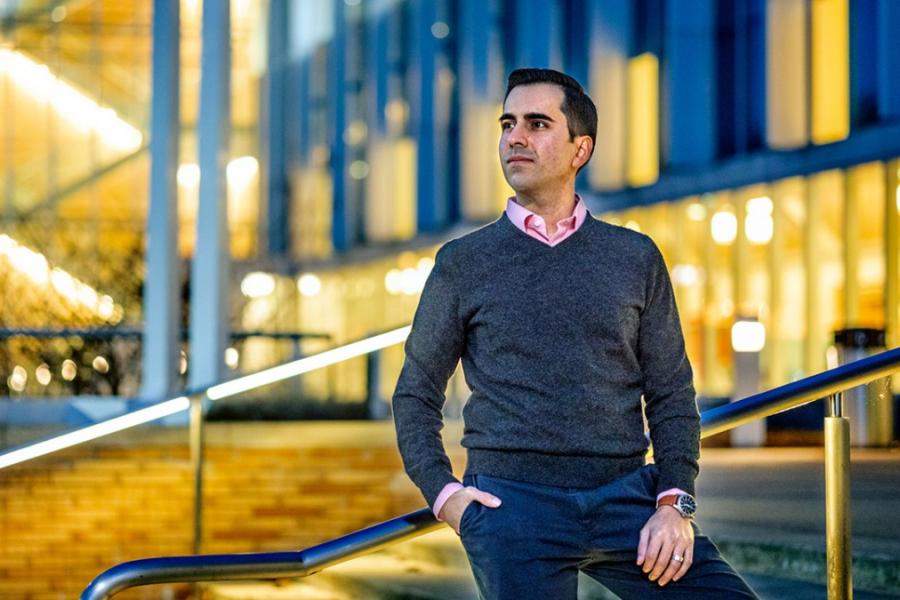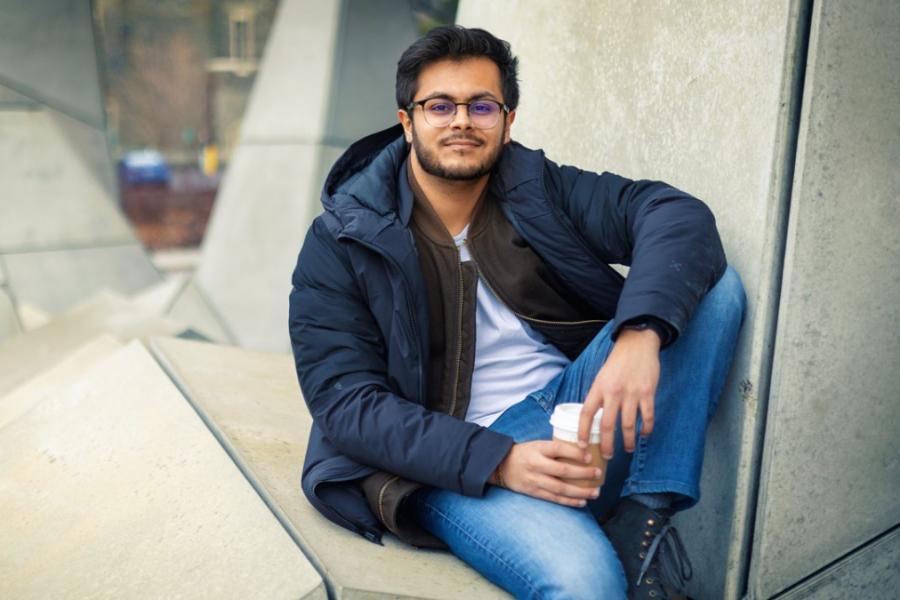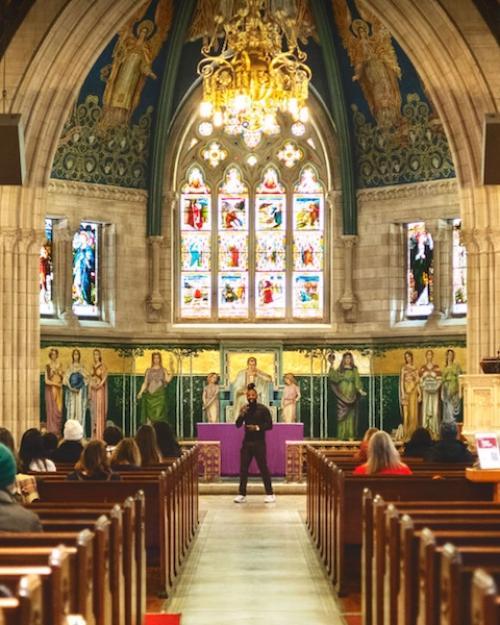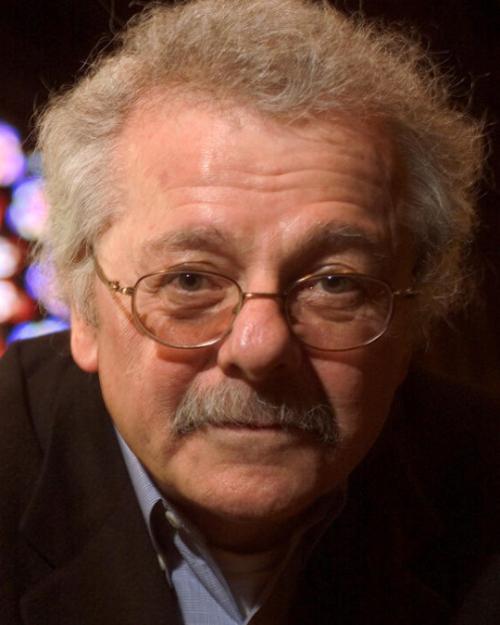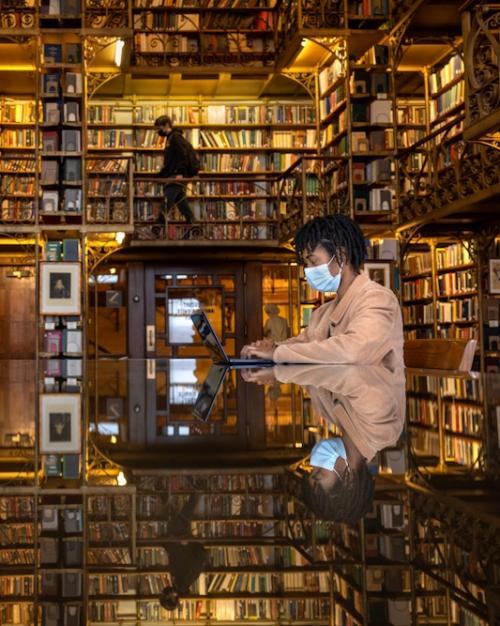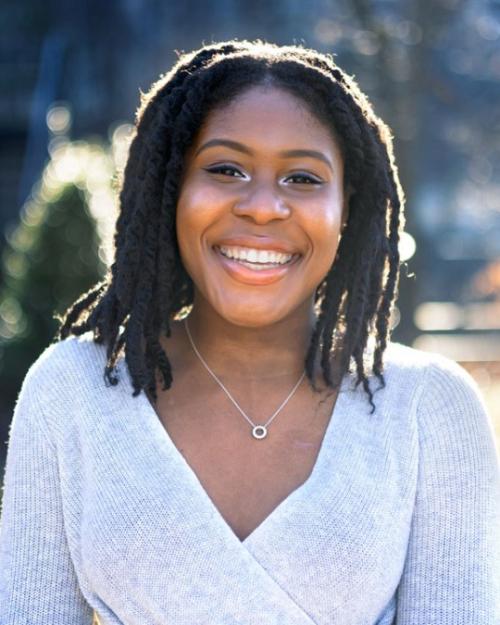Around 1,450 Cornell undergraduate, master’s and doctoral students completed their studies this month. They include students across Cornell’s colleges, from humanities scholars to scientists. The December Recognition Ceremony was canceled on Dec. 14 due to COVID-19 restrictions; those who hoped to attend are invited to return for Commencement in May 2022. In the meantime, with an eye on their futures, some of those anticipating graduation shared their Cornell experiences:
Creating community, here and abroad
A love of language – particularly for the Korean language and culture – guided Kemi Adewalure ’22 toward an Asian Studies major in the College of Arts and Sciences. Since she finished that major’s requirements early, she found a second major: American Studies, where she concentrated on race and ethnicity.
Last summer, Adewalure interned at the White House’s Office of the U.S. Trade Representative. Her colleagues were nice and quite funny, she said. “I didn’t expect people in government to be humorous,” she said.
While her future plans are uncertain, Adewalure enjoyed her Cornell experience.
After making friends at the Carol Tatkon Center for First-Year Students during freshman year, she took a job there in her second year to help others. She never left. “I really enjoy the way we help the community, but also the way in which we have a community among ourselves,” she said.
Later in her undergraduate experience, Adewalure worked for the Asian American Studies Resource Center – at the Top of the Rock – in Rockefeller Hall.
Adewalure proudly helped to organize the popular “BeComing” lunchtime lecture series this semester. “Students shared the process of becoming who they were,” she said, “especially within their identity as Asian, Pacific Islander or Desi.”
In a fraction of a second, boom!
Since spring, Grace Wu ’21, M. Eng. ’22, has been developing a way to make electrical workers less vulnerable to arc flashes. These electrical explosions may be more than 35,000 degrees Fahrenheit in a fraction of a second and send 2,000 people a year to medical burn units.
Electrical workers can wear specially designed, breathable clothing to prevent second- and third-degrees burns. But beyond burns, Wu said, these explosions also create dangerous gases. “No one really has created anything that addresses the toxic gases that are released,” she said.
That’s where Wu comes in. She has been working in the laboratory of Juan Hinestroza, the Rebecca Q. Morgan ‘60 Professor of Fiber Science & Apparel Design in the College of Human Ecology, to attach metal-organic frameworks to personal protective clothing. Think of metal-organic frameworks as nanoscale cages made with metals like copper, built into clothing to limit exposure – and save a person’s health and lungs – to toxic gases during arc flash explosions.
“Long-term health risks can result from arc flash incidents,” Wu said. “Getting burns on your body happens directly and immediately, and proper clothing can address that. But things like respiratory problems can develop over time.”
After receiving her bachelor’s degree in fiber science in May from CHE, she is earning her master’s degree in engineering, focusing on materials science, from the College of Engineering.
Wu will be starting a new job in New York City at the Good Housekeeping Institute, testing consumer products.
“The idea of helping people really draws me in,” Wu said. “I love problem-solving. I love building things. Through the course of the pandemic, I have realized that I’m very human- and consumer-centered.”
‘Greener, cleaner technology’
In a world moving quickly toward electric vehicles, Mumtaziah “Zia” Faaz, M.Eng ’22, thinks about improving energy storage and the need for battery elements.
To obtain those elements, she looked to the ocean. Faaz worked with the Symbiotic Engineering and Analysis Lab – or SEA Lab – in the Sibley School of Mechanical and Aerospace Engineering to study how to sustainably extract resources from the ocean. Specifically, she worked on SMORE – the Symbiotic Machine for Ocean uRanium Extraction – where her research showed that SMORE could extract battery components lithium and cobalt.
Before coming to Cornell, Faaz had never been to the U.S. and had never seen snow. She skied at Greek Peak in Cortland County and sledded down a campus hill.
Faaz first heard of the university halfway around the world, in her home country, Indonesia, by watching “The Office” – which featured Ed Helms, the actor who played fictional Cornellian Andy Bernard.
But Faaz chose Cornell for its environmental reputation. She graduates with a master’s degree in materials science and engineering, and she has accepted a position from Intel Corporation in Portland, Oregon. “I want to apply my work to develop greener, cleaner technology,” she said. “It is the number one green campus in the U.S.”
‘It became more than a hobby’
When industrial engineer Christian Mercado, M.F.S. ’22, moved to Washington, D.C., from Puerto Rico, in 2010 for a consulting job, he soon became a foodie.
“In Washington, I was exposed to a lot of cultures, different people and international foods,” said Mercado, who grew up and was educated in Puerto Rico. “I had a group of coworkers who were into food, especially with Washington being metropolitan and multicultural. We tried different types of food and it became an obsession to learn how to replicate and cook those foods.”
Mercado started posting about it, writing online about recipes and methods. “I kept reading and kept posting and it became more than a hobby,” he said. “I worked on this out of passion.”
So when his wife, Mariely Medina, Ph.D. ’20, started earning her doctorate in food microbiology from Cornell, he constantly pestered her with questions about brewing, yeasts and temperatures. She looked at him and said, “I think that you need to go to school and study what I’m studying.”
So he did. He helped to create the recent “Gorges Libe-ation” red ale with the Big Red Brewing graduate student organization earlier this fall, and he helped to create delicious potable spirits with maple syrup. “I've always been fervent about beer and food,” he said. “Why not make it into a career?”
Mercado will earn a master’s degree in food science, focusing on beer, fermented foods and food security.
‘Uncomfortable … works for my growth zone’
With sweet tea in hand, Zain Khoja ’22 does not search for the easy path. “Cornell is a good fit for me,” Khoja said. “The university gave me several opportunities to encounter things that made me uncomfortable – which works for my growth zone – placing me perfectly, professionally and academically, where I can grow the most.”
On campus, he joined the Cornell App Development (AppDev) project team for developing difficult mobile and web applications. He’s helped create useful apps on campus and organized extracurricular classes that benefit other students to hone their own programming skills. In fact, he’s served as an AppDev course instructor for more than a year, training about 60 student colleagues. During the last spring semester, he was the group’s president.
Khoja, from Dallas, Texas, has seen the world. He’s strolled the streets of Florence and Milan, and he has visited Egypt’s pyramids. His favorite place is Sendai, Japan, which is not a tourist destination, but rather where people simply go about their lives.
“I’m inspired by people from different walks of life,” he said, “and from my own experiences exploring the unknown.”
After graduation with a bachelor’s degree in information science through the Cornell Ann S. Bowers College of Computing and Information Science, Khoja will start his postgraduate career as a product designer in New York City for Ramp, a finance automation platform.

